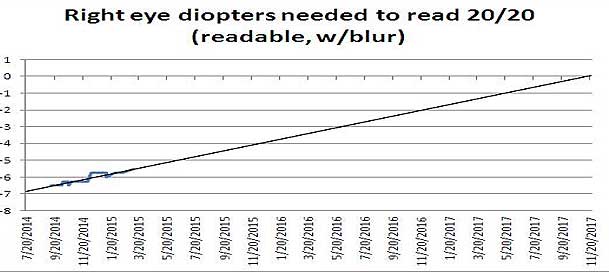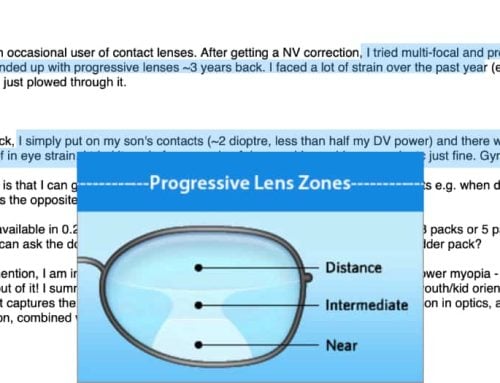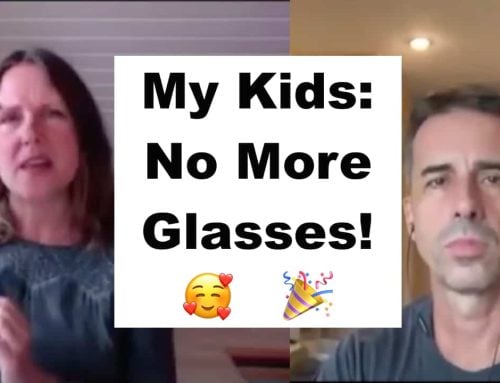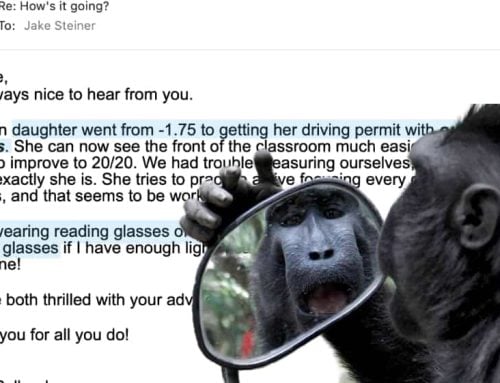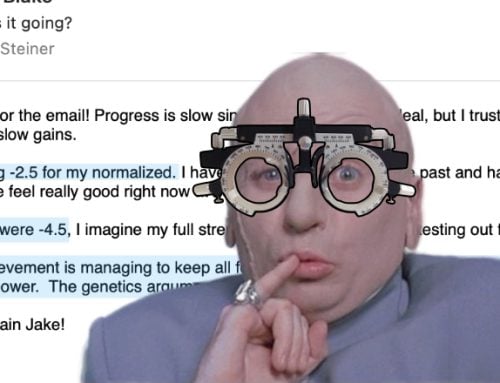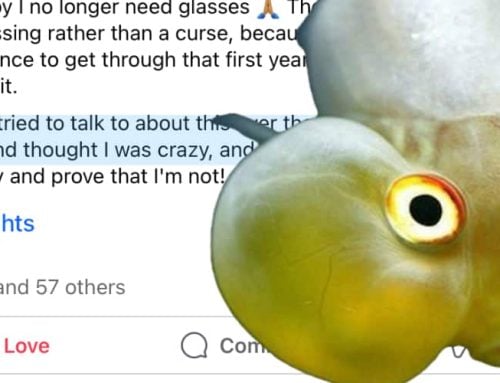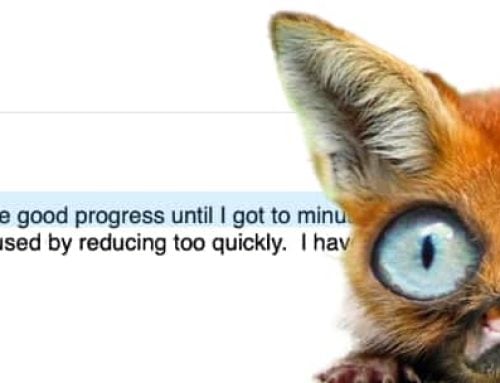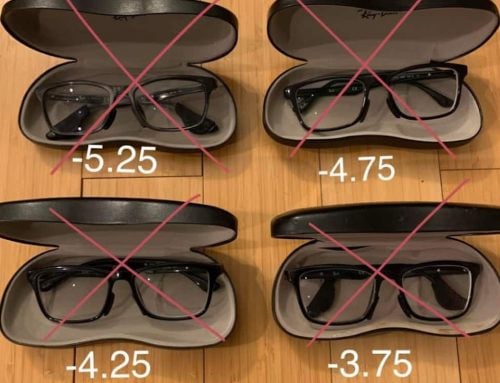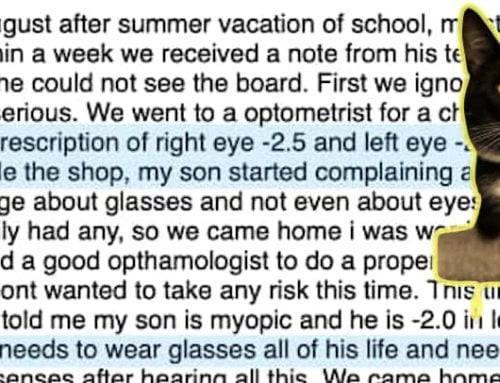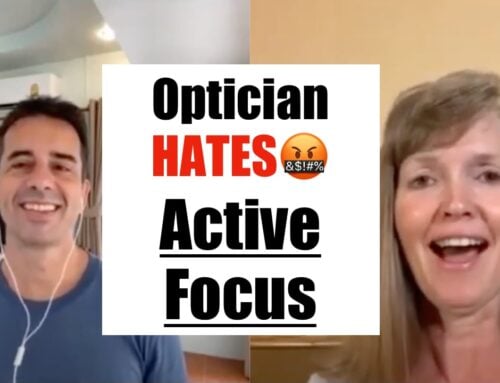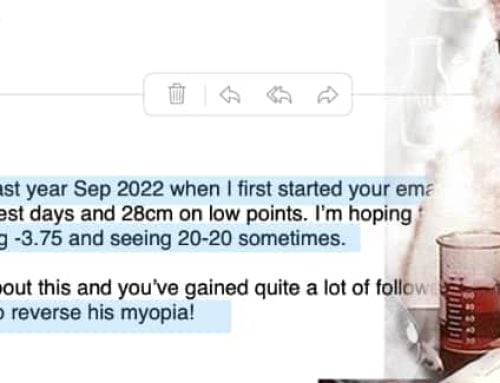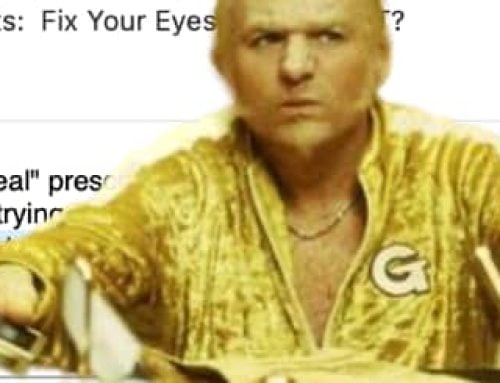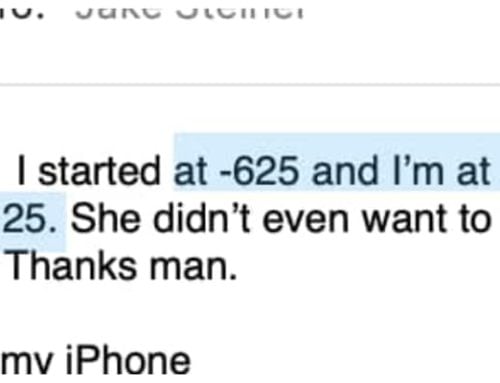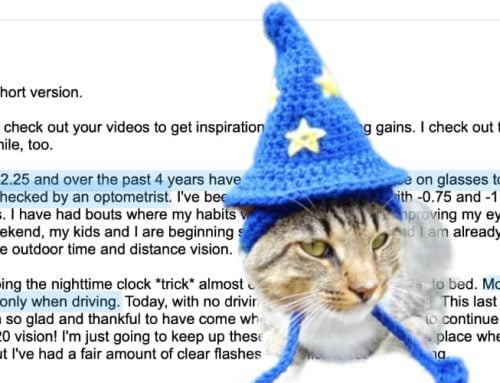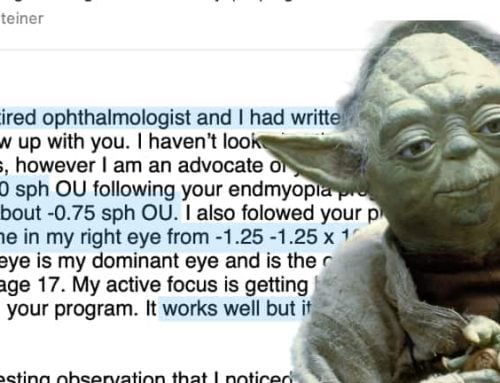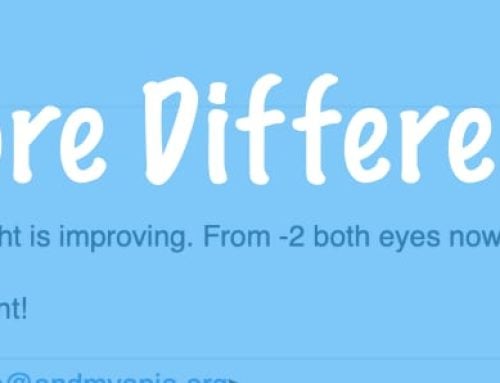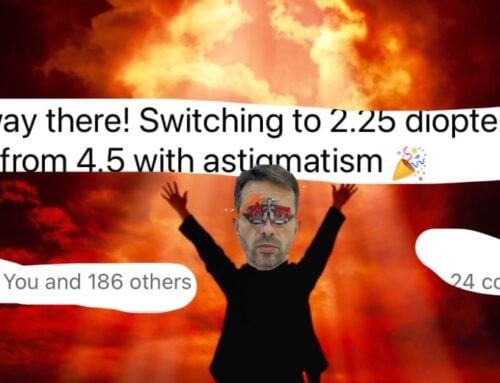Today let’s look at Jon‘s post in the forum, talking about his discovery of myopia rehab, this site, and is initial experience with putting all the concepts into practice:
![]() Finally getting around to doing a little introduction here…
Finally getting around to doing a little introduction here…
I forget what I was researching at the time that first led me into discovering that myopia reduction may be possible, but I think it was something that led me to gettingstronger.org and various hormesis related topics. I then discovered his writings on and experience with myopia reduction and then perused the forums over there, which I am pretty certain is where I found a link over here. All this was in the first half of 2014 (?), but I left it there for a while and saved the links.
Late summer, I came back and starting reading all the free content available here to try and assess whether this was legit. I am ever the skeptic and the proliferation of pseudoscience out there makes me cautious, but I am also adventurous and like to push the boundaries of what is accepted.
Some posts stated that all the concept needed were available in the free content, but just not as organized as the course. So I took this encouragement and started there and began educating myself and taking some initial steps to reduce my high myopia (-7.75 right, -8 left, with minor astig.) to see if the concepts worked for me, and if they did to proceed with the paid course at a later date to support the project a bit and fill in the gaps.
Well, they did, and so I did start the course around the new year. I also felt that I was plateauing around that time, so I hoped that the full course would help me discover a way beyond that.
Along the way I read many reports from other participants. The experiences from other high myopia participants especially were quite encouraging. And so I will share mine, in the hopes that it helps others at some point.
The journey down…
As a kid, after getting new prescriptions, I can remember being told on more than one occasion that the world would look like it is jumping out at me and that effect would be temporary as my eyes adjusting to the new Rx. I now see that what was really happening there was overprescription and my eyes subsequently reshaping to adjust to that. ![]()
Note: For ease of reading below, I will only indicate my right eye diopters. My eyes have generally always been within about .25 diopters of each other, with a few outliers at .5 from time to time. Astigmatism has been a small amount (? -.75, -.5, and once positive values) and has come and gone in my Rx records over the years, going all the way back. Due to that I decided to go without astig correction for my differential and normalized prescriptions thus far and haven’t worn glasses with any since September 2014. Astig. corrections also aren’t represented in the summaries below (and in future posts to this thread).
Below is my journey down the rabbit hole. HS ended in 1997. College in 2000. And my career puts me in front of a PC all day so I now take the recommended steps to mitigate that.

And the journey back out thus far, complete with a trendline that I hope to keep to. ![]()


